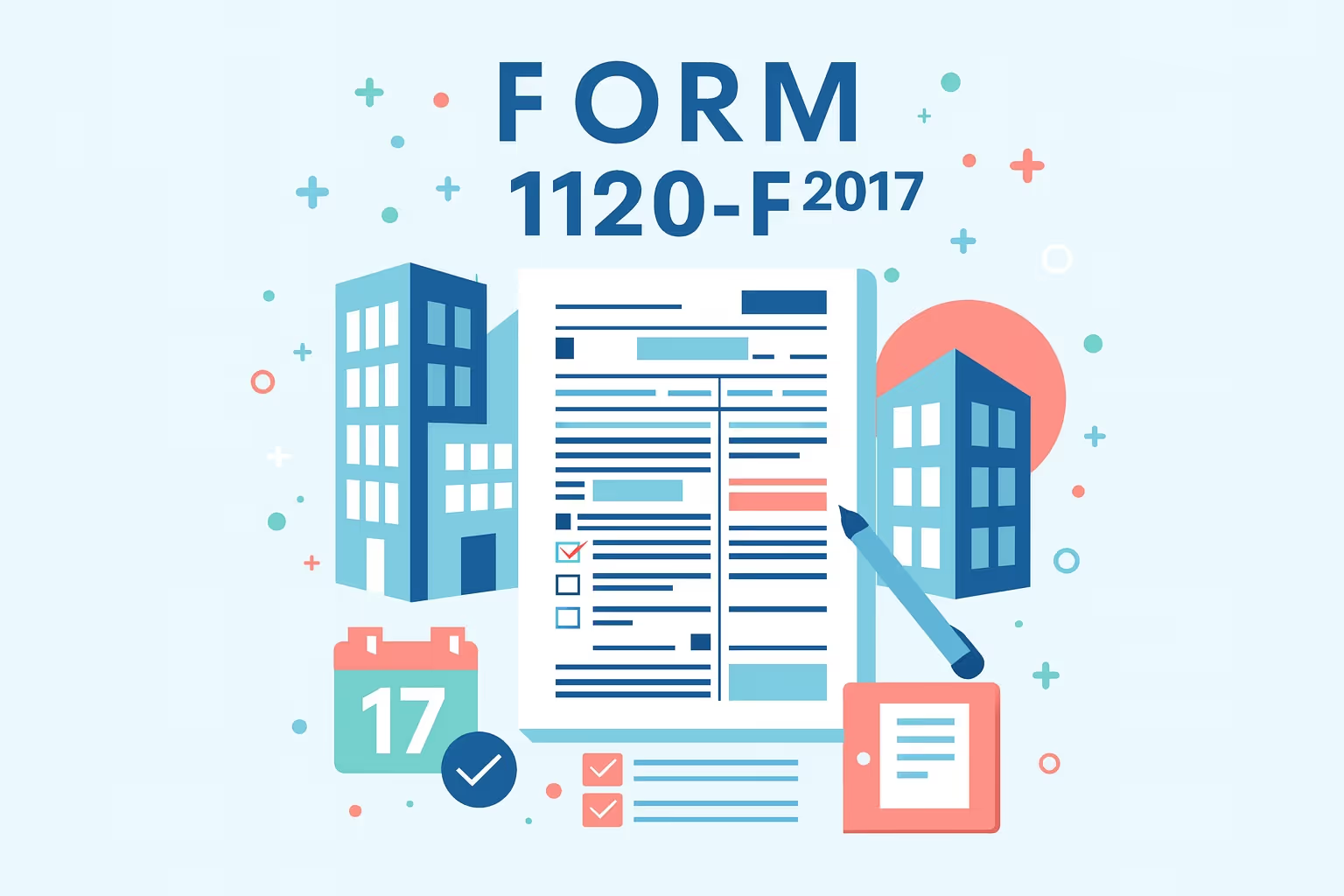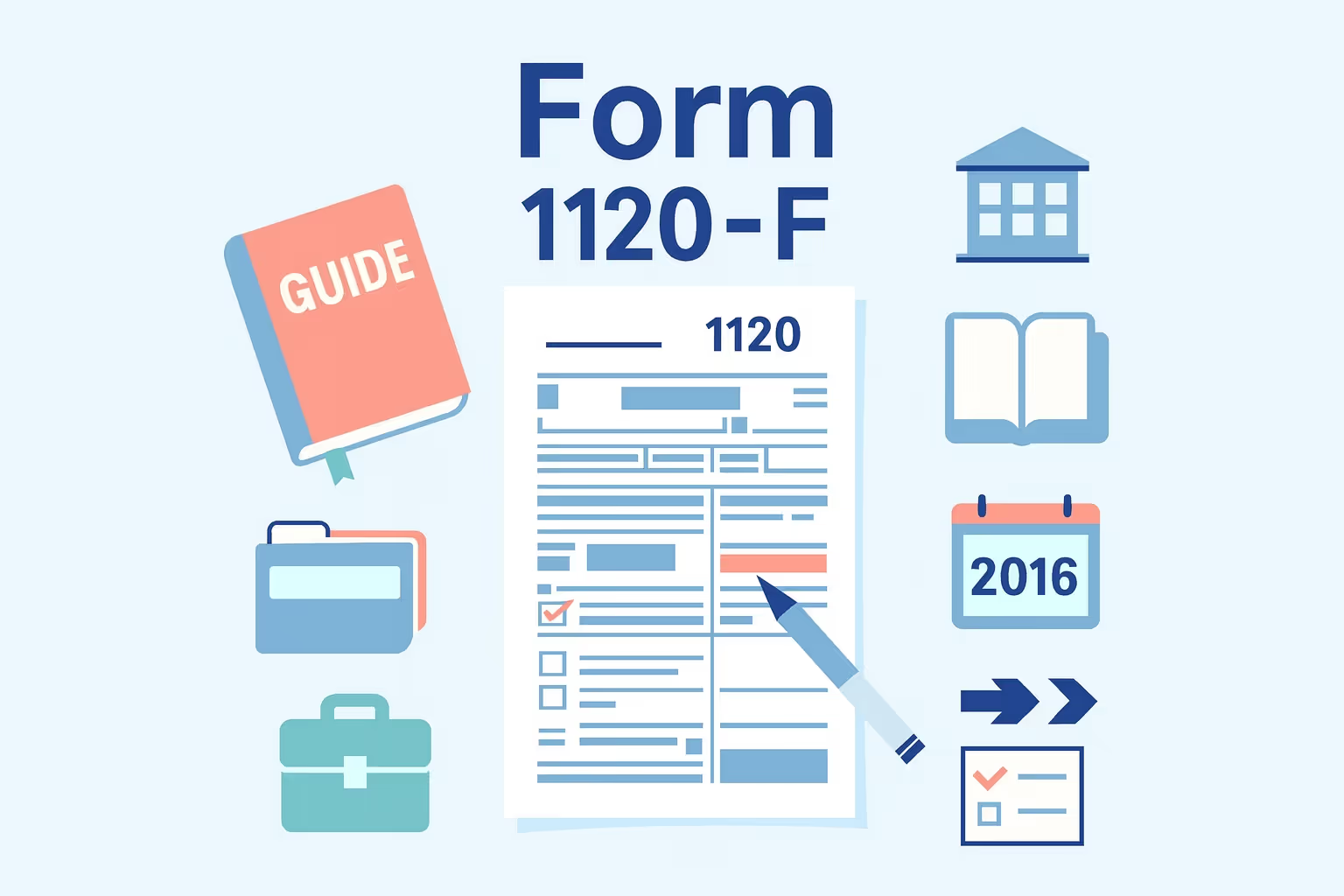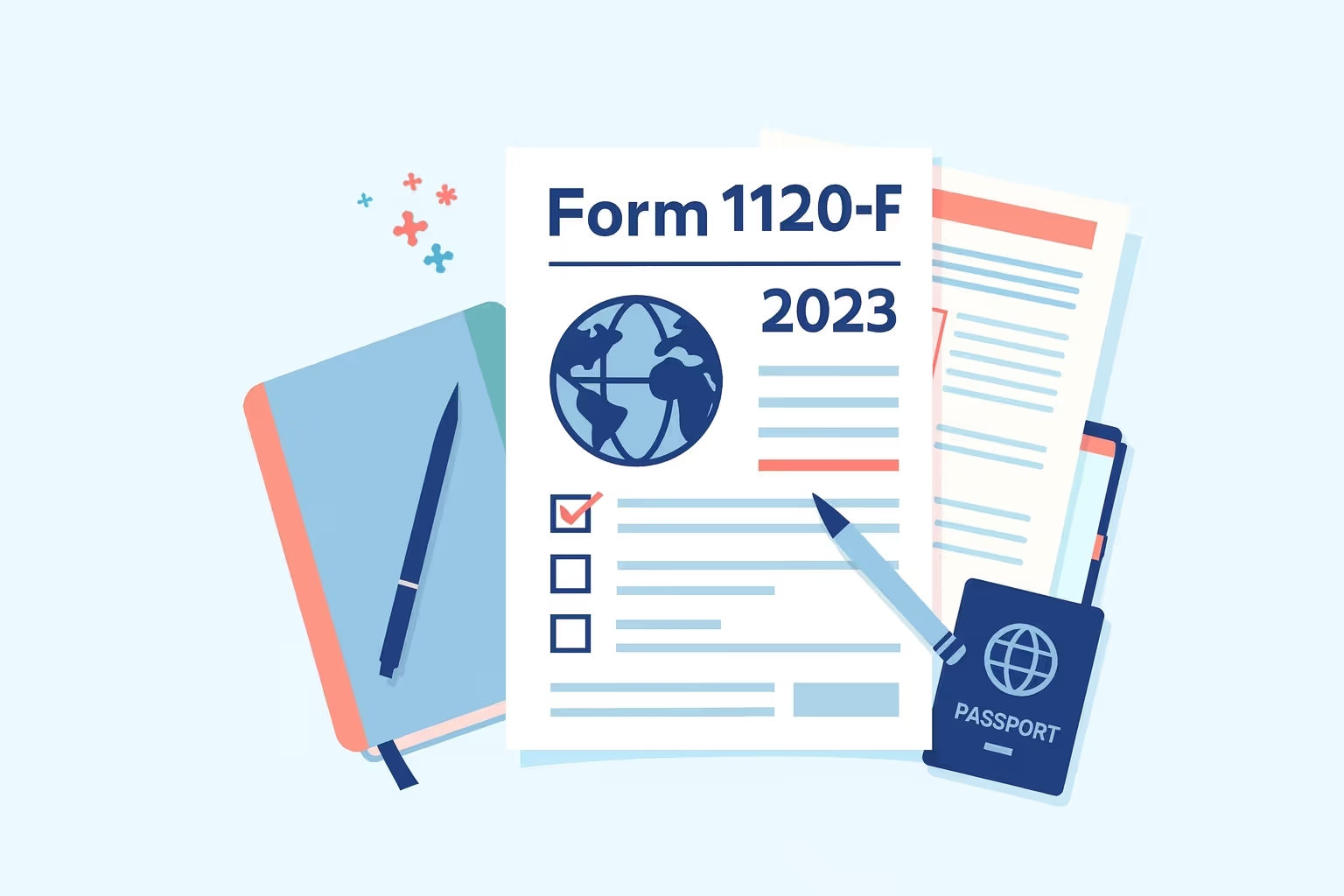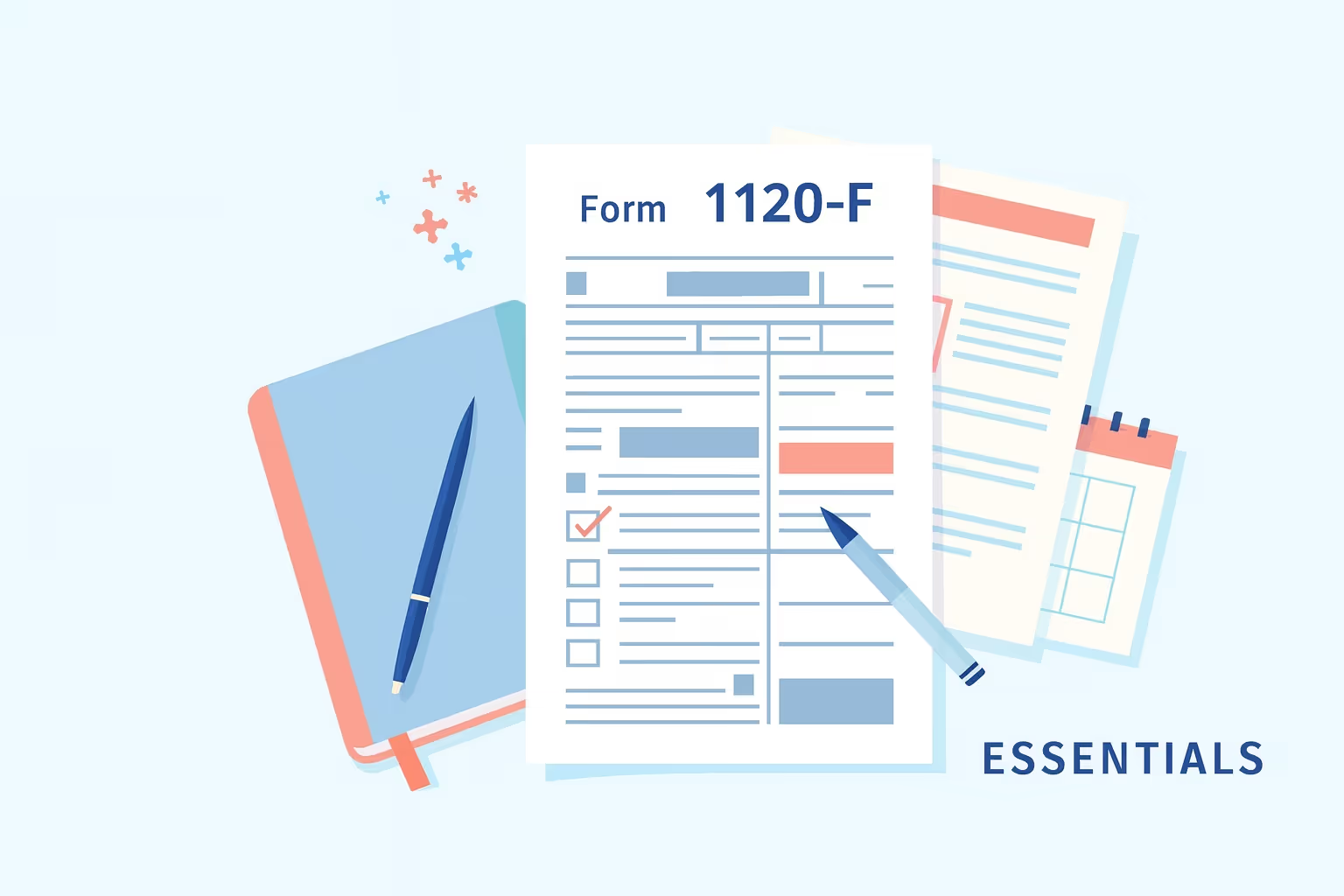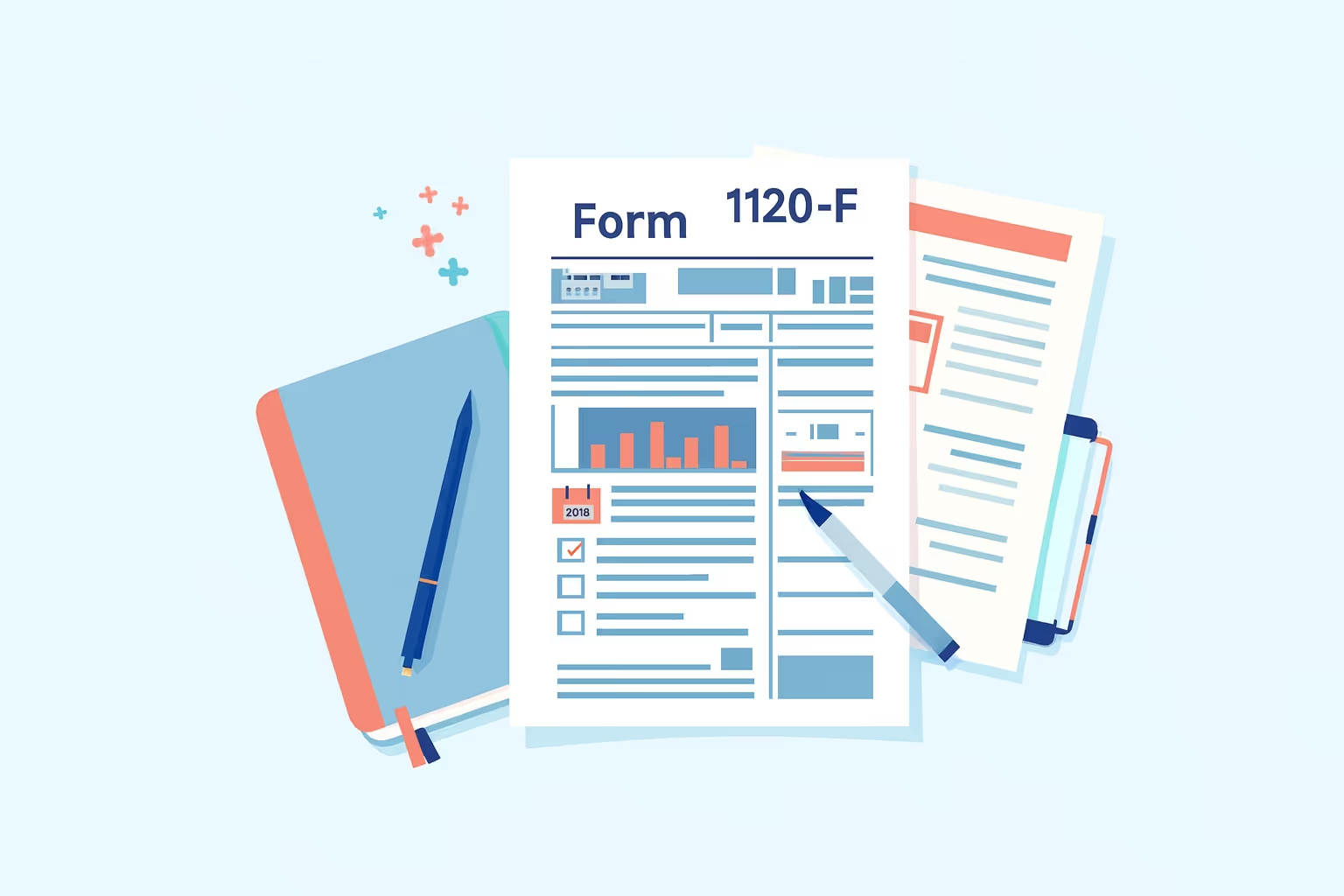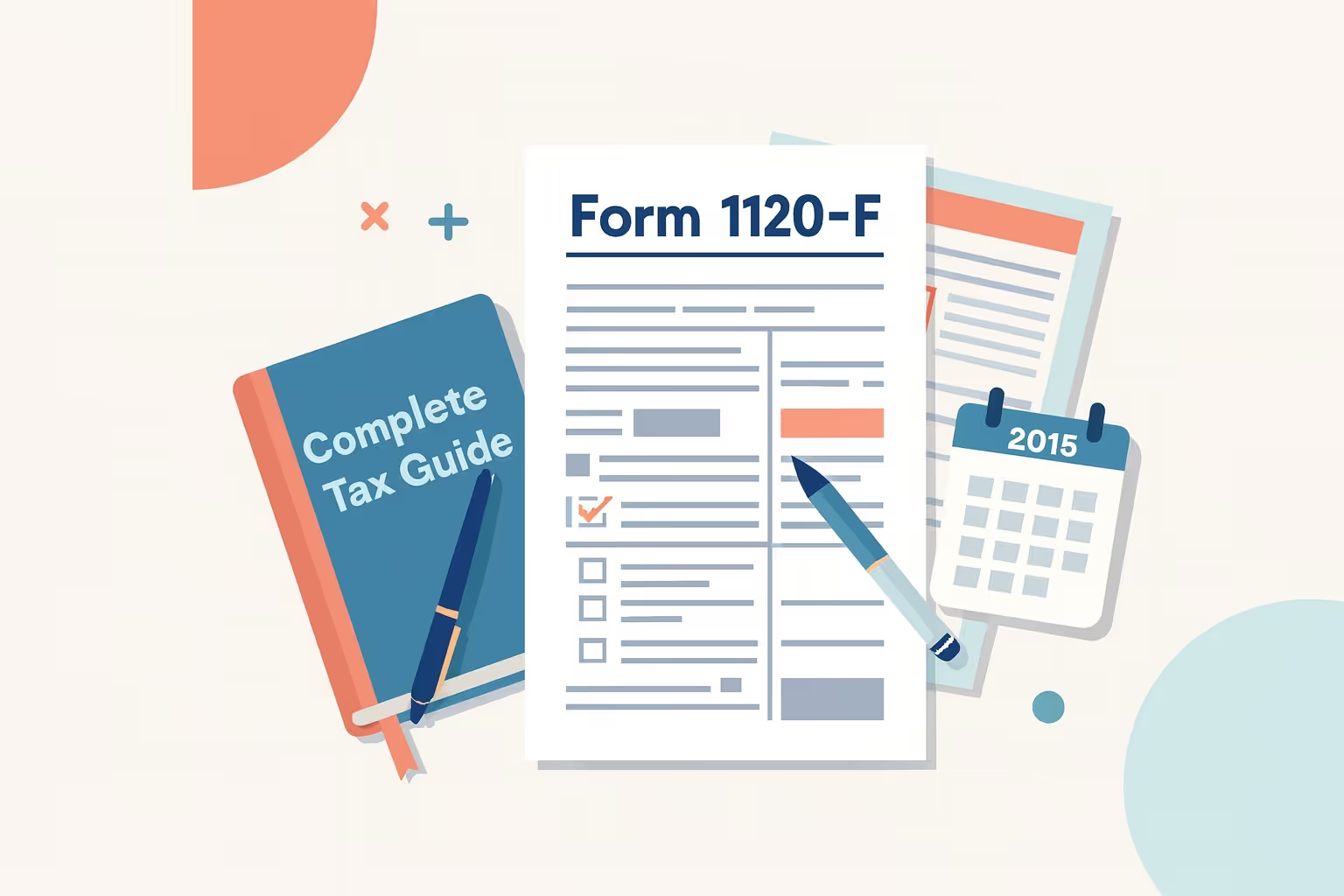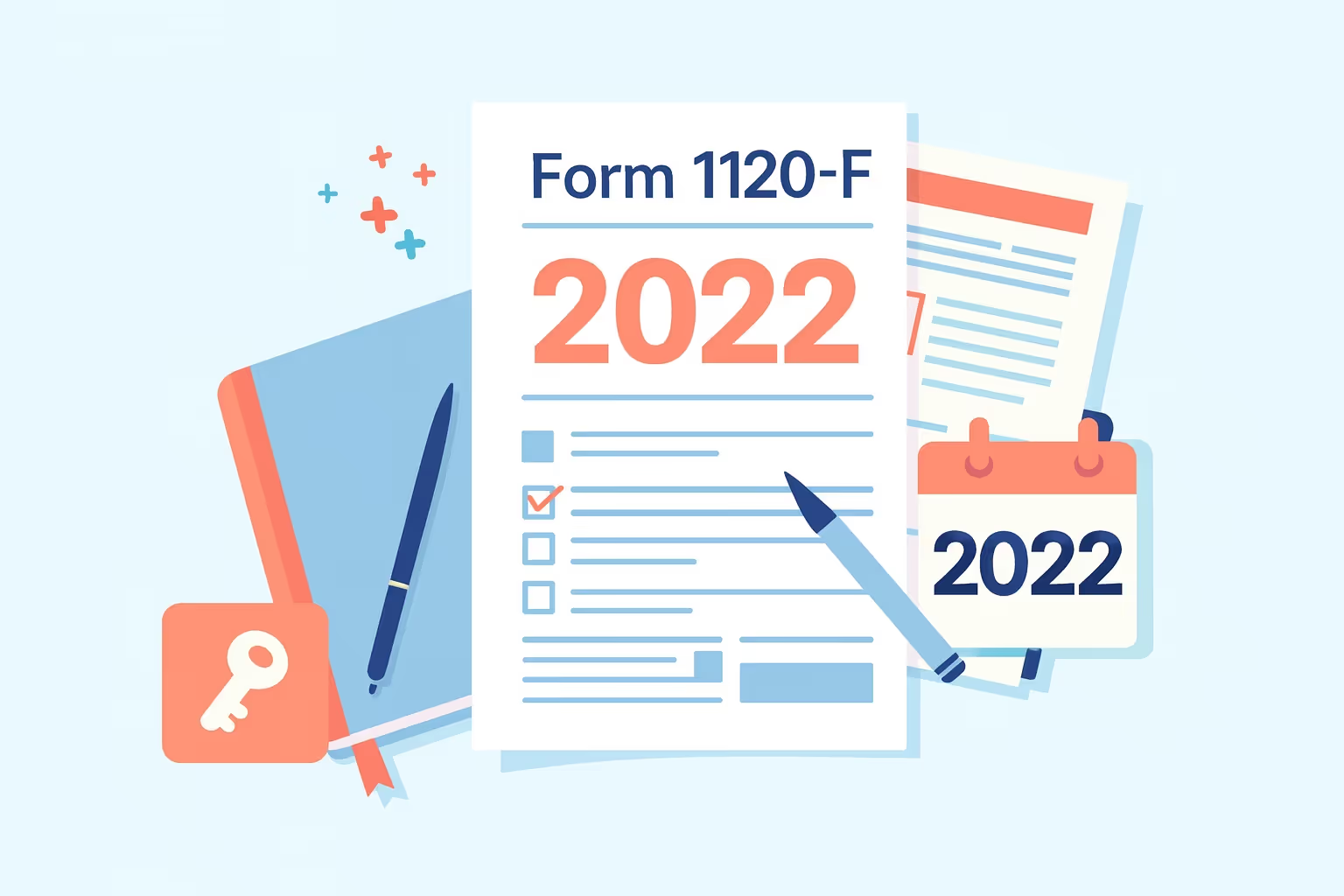
What IRS Form 1120-F (2023) Is For
The IRS Form 1120-F (2023) serves as the official federal tax return for foreign corporations earning income or conducting business in the United States. It enables corporations to report income, deductions, and credits accurately for tax filing purposes. Each form helps determine income tax liability, potential refunds, and deductions claimed for the tax year.
For example, a corporation reporting dividends, mortgage interest, wages, and capital gains through this form ensures compliance with federal tax rules. The IRS recommends filing your tax return before the tax deadline to avoid penalties and maintain eligibility for refunds.
Learn more about business income tax and how it applies to your company.
When You’d Use IRS Form 1120-F (2023)
Foreign corporations often face different reporting requirements when earning income in the United States. Filing IRS Form 1120-F (2023) becomes necessary when a corporation has income tied to U.S. business operations or investments. Using the correct federal tax return ensures corporations remain compliant, avoid IRS penalties, and qualify for refunds or deductions.
Typical filing scenarios include:
- Operating in the U.S.: A corporation files when it earns wages or revenue from U.S. clients or accounts.
- Owning assets: A corporation must file if it holds property, dividends, or stock gains in any U.S. jurisdiction.
- Paying or receiving income: Businesses file when they receive mortgage interest, capital gains, or related payments.
- Amended or late filings: Corporations use this filing to correct errors or claim refunds for earlier tax years.
- Protective filing: This type of filing ensures corporations remain eligible for deductions under federal tax rules.
Key Rules or Details for the 2023 Tax Year
The 2023 tax year introduced several updates that affect how foreign corporations complete their federal tax return. Understanding these rules helps ensure accurate reporting and full compliance with U.S. tax filing standards. Each update directly impacts deductions, credits, and payment schedules for eligible corporations.
Important 2023 Updates:
- Late-filing penalties: The IRS charges a minimum of $485 or 5% of unpaid taxes per month for delayed submissions.
- E-file mandate: Corporations that submit 10 or more returns must e-file through approved software.
- Corporate Alternative Minimum Tax (CAMT): This rule applies to large corporations operating under different tax requirements.
- Meal deductions: The allowable deduction reverted to 50% after the temporary 100% rate expired.
- Elective payment credits: These credits allow corporations to claim refundable amounts for qualified clean energy projects.
- Filing deadline: The due date is April 15, 2024, for calendar-year filers, with extensions available upon request.
How to Complete the Federal Tax Return Step-by-Step
Filing IRS Form 1120-F (2023) requires attention to detail and accurate preparation of all tax information. Each step ensures foreign corporations meet federal filing standards while qualifying for deductions and potential refunds. Maintaining clear documentation supports the accuracy of reported income, deductions, and credits.
Step-by-Step Process:
- Step 1: Gather and Prepare Records
The corporation should collect receipts, bank statements, wage reports, and required IRS forms such as 1042-S, 8805, and 8288-A. It must also include prior tax years, deductions, and business expenses for accurate reporting. - Step 2: Complete and Attach the Form
The taxpayer must fill out Form 1120-F with accurate income, assets, and credits. All schedules, including H, I, P, and S, should be properly attached. - Step 3: File Electronically
The filer must e-file the return using approved tax software or through a certified preparer to ensure timely processing. - Step 4: Retain Records
The corporation should keep copies of the completed tax return, receipts, and supporting documentation for future reference.
Common Tax Filing Mistakes and How to Avoid Them
Foreign corporations filing IRS Form 1120-F (2023) can enhance accuracy and minimize errors by taking careful preparation. Understanding where most mistakes occur helps ensure compliance with federal tax rules and supports proper refund claims. Each point below highlights a common issue and guides how to prevent it.
Frequent Errors:
- Missing Protective Return: Some corporations fail to file a protective return and lose deduction or refund rights. Filing on time preserves these benefits.
- Incomplete schedules: Filers often skip sections on required schedules. They should check each field to ensure all entries are complete.
- Incorrect filing status:Many taxpayers choose the wrong filing category. Verifying the correct status prevents future adjustments.
- Missing Attachments:Corporations sometimes omit Form 8833 or other documents. Including all attachments ensures proper credit and treaty claims.
- Filing requirements: Some filers ignore e-filing rules. Submitting electronically when required keeps the filing compliant.
What Happens After You File Your Federal Tax Return
After filing IRS Form 1120-F (2023), foreign corporations enter the IRS review and processing stage. The IRS may send written notices requesting clarification or adjustments to reported income, deductions, or credits. Refunds for international entities often take longer because of additional verification and cross-jurisdictional checks.
If taxes remain unpaid, corporations can use Form 9465 to establish an IRS payment for employment or income taxes. Interest and IRS penalties continue to accumulate until the balance is fully paid. Corporations should monitor their IRS account for updates and correspondence regarding status changes.
Maintaining organized copies of the tax return, receipts, schedules, and all IRS communications ensures accuracy and proof of compliance. Consistent recordkeeping supports transparency and helps address potential questions in future tax years.
Frequently Asked Questions
What is IRS Form 1120-F (2023) and who must file it?
IRS Form 1120-F (2023) is the federal tax return used by foreign corporations that earn U.S. income or operate within U.S. jurisdictions. Corporations must file this form to report income, deductions, and credits for tax purposes. Filing ensures compliance with federal tax rules and accurate reporting of assets, wages, and dividends.
When is the tax deadline for filing IRS Form 1120-F (2023)?
The tax deadline for most calendar-year corporations is April 15, 2024. The IRS recommends submitting your return early or requesting an extension if you need additional time to gather tax information and complete the process. Meeting deadlines prevents interest charges and IRS penalties that can affect refund eligibility.
Can foreign corporations e-file their federal tax return?
Yes, corporations filing ten or more returns must e-file through approved tax software or with the assistance of a certified tax preparer. Electronic filing improves accuracy, reduces errors, and ensures faster confirmation of receipt from the IRS.
What deductions or credits can corporations claim on IRS Form 1120-F (2023)?
Corporations may claim deductions for wages, mortgage interest, and state tax expenses paid during the tax year. Eligible credits may apply to clean energy investments or international tax agreements. Accurate documentation and receipts help determine allowable claims and increase the chance of a max refund.
Where can corporations get expert help with IRS Form 1120-F (2023)?
Corporations can consult a qualified tax preparer or international tax advisor who is familiar with U.S. tax filing requirements. These professionals provide helpful guidance on filing status, tax rules, and refund claims. Expert help ensures the federal tax return is complete, accurate, and compliant with IRS standards for future filings.
For a detailed breakdown of filing requirements, eligibility rules, and step-by-step instructions, see our Form 1120-F 2023 Instructions for Foreign Tax Compliance.




















